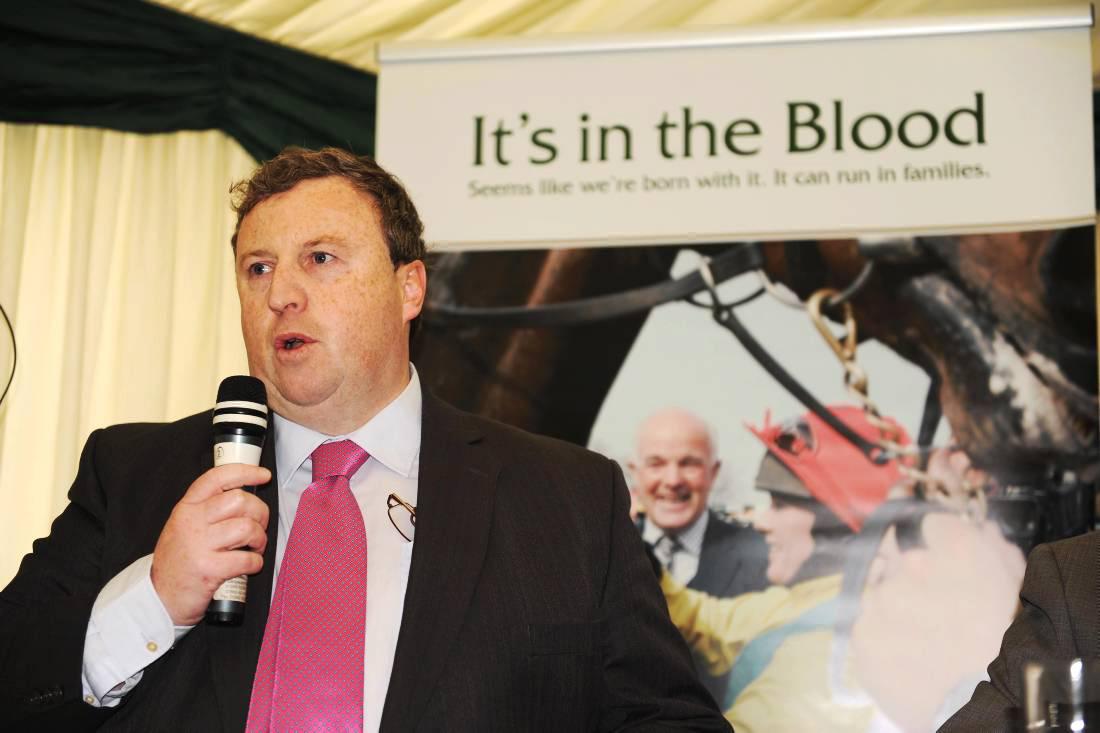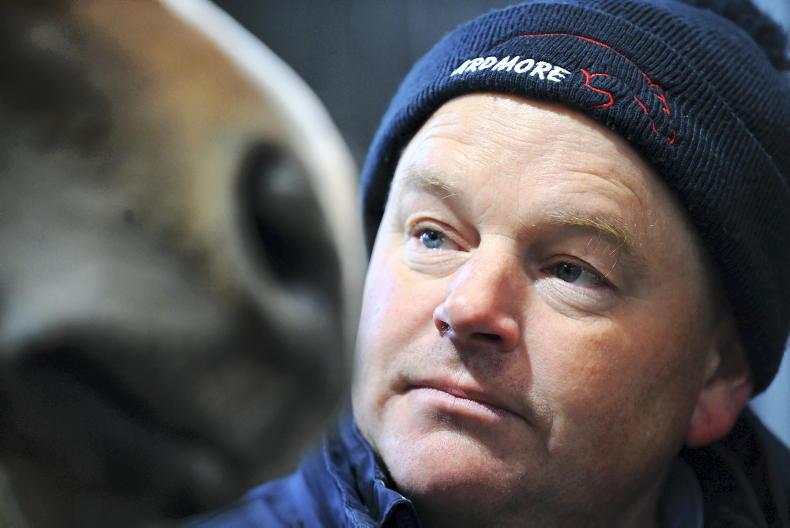The establishment of a new Racecourse Capital Development Fund of over €100 million, an increase of €5 million in prize-money next year, enhanced integrity funding and further reductions in owners’ and trainers’ administrative costs are the key features of Horse Racing Ireland’s 2015 budget.
Following a HRI board meeting on Thursday, the racing authority issued details of its spending plans for 2015 on Friday. HRI has a budget of €54.4m for next year, an increase of approximately 25% on this year.
HRI chairman Joe Keeling said: "When I became chairman of HRI, I made a public commitment to reduce the costs of ownership and increase prize-money and, thanks to the Government’s improved level of funding for 2015, we can continue to deliver on that commitment.
"The security provided by knowing that our funding will increase for each of the next two years allows us to establish a Capital Development Fund in excess of €100 million. The requirement to enhance our drug testing systems is a priority given the events that unfolded in Ireland and overseas this year, and HRI is determined to create and fund a world-class system to address the needs of the industry in the long-term.”
Friday's statement listed seven areas in which funding will be directed:
1. Racecourse Capital Development
The Board of Horse Racing Ireland has agreed to establish a Racecourse Capital Development Fund of over €100 million to cover works to be undertaken between 2015 and 2019. All 26 racecourses are eligible to apply for funding under this new scheme, which will include major redevelopments at the Curragh and Leopardstown. This will create significant employment in the construction industry countrywide and priority will be given to customer-facing projects. HRI will fund 40% of the cost of approved projects.
2. Prize-money
HRI will increase prize-money by €5 million (or 10%) next year, from a projected €48.8 million this year to €53.9 million in 2015. This follows on from a €2.6 million (5%) rise in prize-money in 2014. The absolute minimum race value will be increased from €7,500 to €8,000, with significant increases to other base values as set out in Table A below.
The key priority has been to target the point-of-entry races, such as flat maidens, bumpers, maiden hurdles and beginners’ chases, as a means of encouraging greater levels of racehorse ownership. Handicaps will be increased on a tiered basis in accordance with HRI's principle of rewarding horses in accordance with their ability. Some black-type categories have been raised under both codes to ensure that Ireland's premium races remain competitive internationally in prize-money terms.
HRI will also contribute £250,000 stg towards the joint Anglo/Irish 'Plus Ten Scheme' which will see up to 100 bonuses of £10,000 stg paid out to the qualifying winners of all 2-year-old races (bar Black-Type races) run in Ireland this year.
Table A:
Key Prize-money Increases
Minimum race values going up from €7,500 to €8,000
Minimum value for flat maidens going up from €9,000 to €11,000
Minimum value for beginners’ chases going up from €9,000 to €11,000
Minimum value for maiden hurdles going up from €8,000 to €10,000
Minimum value for bumpers going up from €7,500 to €9,000
Handicaps values going up on a tiered basis under all codes
Group/Grade 1 & 2 races and Flat Listed races going up under all codes
3. Integrity and Racecourse Services
A provision of €7.1 million has been set aside for integrity services. This includes a significant capital provision to allow for the purchase of laboratory equipment to enhance the drug testing capabilities of the Irish racing and breeding industry. This investment will ensure that Irish drug testing systems and protocols will meet the highest international standards. A further provision of €3.4 million has been made for integrity-related racecourse services including a capital allocation for the purchase of new starting stalls and enhanced levels of picture production.
4. Reduction in Registration Charges
Reductions in administrative charges for racehorse owners and trainers will amount to 17.5%, representing savings of over €500,000. These follow on from 10% reductions delivered in 2014. A number of charges, such as the accounting fees for all clients and the Minitel costs for trainers and jockeys agents, will be removed altogether, as will the initial cost of racehorse ownership registration. As well as incentivising new owners, there will also be considerable savings for existing owners.
5. Additional Fixtures
Six additional fixtures will be allocated on a one-off basis for 2015 to provide opportunities at times when there is the greatest demand from the horse population. The HRI Fixtures Committee has identified appropriate slots in April/May for National Hunt and September/October for Flat, when field sizes are expected to be higher than the current Irish average of 11 runners per race. The six new dates will be announced in January after racecourse applications have been sought and considered. Priority will be given to those tracks offering the greatest variety of race distances and highest safety limits.
6. Industry grants
Grants of €815,000 and €1,275,000 were approved for the Irish Equine Centre and Irish Thoroughbred Marketing (ITM) respectively, both of which also receive funds from the Thoroughbred Foal Levy. ITM will be targeting both existing and new international markets for horse exports and inwards investment, as well as concentrating additional resources into the recruitment and retention of racehorse owners. An amount of €735,000 was approved for industry training and education, including grants to RACE and the Farrier School.
7. Point-to-Points
The Board acknowledged the importance of the point-to-point sector to the industry and approved in principle an increase in grants for staging point-to-point meetings with details to be announced in January following further discussions with the INHS committee.
Brian Kavanagh, chief executive of HRI, said: “The increase in funding through the Horse and Greyhound Fund allows us to plan for the development and enhancement of Irish racing, capitalising on the uplift in the economy and the outstanding reputation of Irish bloodstock internationally. Improving racecourse facilities is of the utmost importance, with the Curragh and Leopardstown obvious priorities, reflecting the high standard and international status of the races staged there.
"I am particularly pleased that we have been able to increase prize-money, which will help to ensure that Ireland remains competitive internationally. Owners are the life-blood of our industry and our increased race values, coupled with the further reductions in administrative charges, will hopefully encourage new owners into the sport and existing owners to reinvest. Growing the numbers of horses in training is an absolute priority to maintain the competitiveness of Irish racing and generate increased employment in our vital rural industry.”
More on this story in The Irish Field on Saturday. Online from 9.30pm Friday


 This is a subscriber-only article
This is a subscriber-only article
 It looks like you're browsing in private mode
It looks like you're browsing in private mode









SHARING OPTIONS: